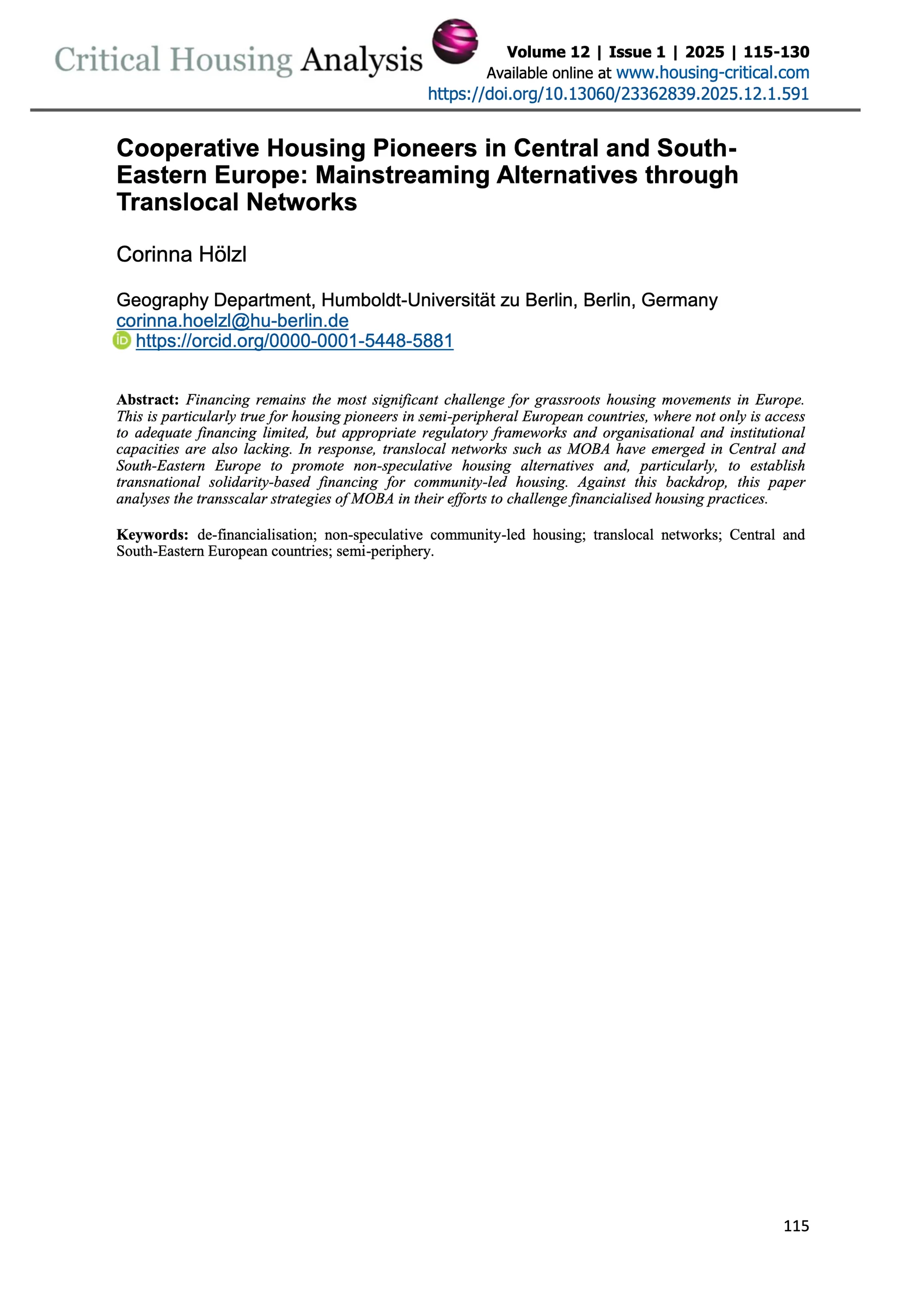Context and Background
The document titled "Cooperative Housing Pioneers in Central and South-Eastern Europe" is set within the broader discourse on sustainable housing amidst financial challenges faced by grassroots movements across Europe. Authored by Corinna Hölzl from the Geography Department at Humboldt-Universität zu Berlin, this paper highlights the ongoing struggles related to financing and regulatory frameworks that hinder affordable housing initiatives in semi-peripheral European regions.
Financing Challenges
The primary focus of the paper is the financing obstacles confronting grassroots housing movements in Europe, particularly in semi-peripheral countries where access to adequate financial resources is severely limited. The author notes that these challenges are exacerbated by a lack of appropriate regulatory frameworks and insufficient institutional capacities. The phenomenon of "super-homeownership" is prevalent in Central and South-Eastern European (CSEE) countries, with over 70% of households owning their homes, yet there is a critical shortage of affordable rental and social housing options. Informal rental agreements and weak tenant protections further complicate the housing landscape, particularly affecting younger generations in major cities such as Prague, Budapest, and Zagreb.
Emergence of MOBA
In response to these challenges, the translocal network MOBA (a solidarity-based transnational umbrella association) has emerged, uniting cooperative initiatives from five countries: Croatia, Czech Republic, Hungary, Serbia, and Slovenia. Established in 2017 and formally constituted as a European Cooperative Society (SCE) in 2020, MOBA aims to promote non-speculative housing alternatives and establish transnational solidarity-based financing for community-led housing initiatives. The network encourages collaboration among its members to develop innovative housing solutions that diverge from the prevailing neoliberal narratives.
Pilot Projects and Innovations
The paper details various pilot projects initiated by MOBA members, including the Hungarian ACRED and the Czech Sdílené domy, which have launched community-led housing projects in Budapest and Prague. In Croatia, Cooperative Open Architecture is working on architectural models tailored for local communities, while ZEF is developing transnational financing innovations, including the establishment of a European Ethical Bank. In Serbia, the Pametnija Zgrada initiative focuses on public engagement and education regarding cooperative housing.
Innovative Financing Solutions
To address the financial bottlenecks faced by new cooperatives, MOBA is developing the MOBA-Accelerator, a revolving fund designed to provide interim financing for housing projects. This fund aims to support initiatives until they can secure long-term financing through conventional banks. Additionally, the proposed European Ethical Bank seeks to provide credit services aligned with the needs of SMEs, thus filling a gap in ethical financing options for housing cooperatives.
Transnational Networking and Advocacy
MOBA's transnational network plays a crucial role in capacity building, knowledge exchange, and advocacy against financialized housing practices. The network not only connects local initiatives but also enhances their visibility, making them more appealing to potential funders. The study emphasizes the importance of cultural proximity among members and the shared historical context, which fosters mutual understanding and collaboration.
Conclusion
In conclusion, the paper presents MOBA as a pivotal player in the movement toward de-financialization of housing in Central and South-Eastern Europe. Through its innovative financing models, cooperative structures, and translocal networks, MOBA aims to foster sustainable housing solutions that prioritize community needs over speculative interests, ultimately contributing to a more equitable housing landscape in the region.
